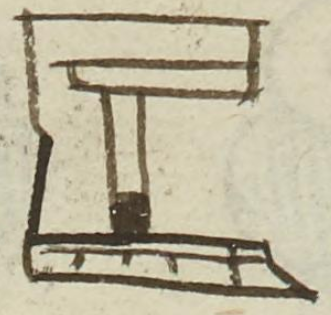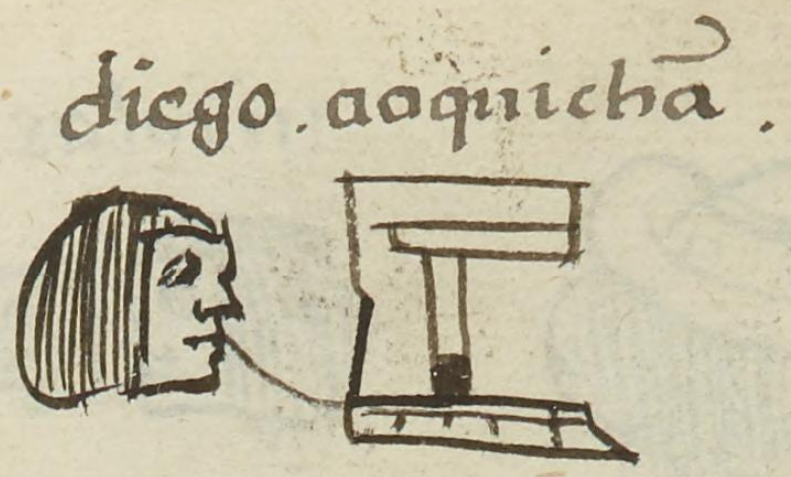Aoc Ichan (MH662r)
This black-line drawing of the simplex glyph for the personal name Aoc Ichan (“No Longer His Home”) is attested here as a man’s name. The glyph shows a profile view of a house or home (chantli) with a T-shaped beam structure at the entrance and a horizontal row of individual bricks or stones at the foundation.
Stephanie Wood
The use of the adverb aoc across this digital collection is something worthy of close study. Adverbs are somewhat rare, and this negative one might be useful for studying changes in daily life that could be related to emotion. See, for example, Aoc Tocniuh, below. An empty house conjures up the loss of life from epidemics in the colonial context, but if this name predates European colonization, it could simply refer to a house that was abandoned through natural death. This is also worth pursuing for a greater understanding of naming practices. Why would parents give a name such as this to a baby? Was it a metaphor for an orphan, a wanderer/vagrant, a vacant mind, or the like? See other glyphs for the name Aoc Ichan (which could also be spelled Aoquichan), below.
Stephanie Wood
1560
Jeff Haskett-Wood
aocichan, aoc ichan, aoc ychan, casa vacía, muerto, muerte, nombres de hombres

aoc, no longer, https://nahuatl.wired-humanities.org/content/aoc
chan(tli), home, https://nahuatl.wired-humanities.org/content/chantli
i- (possessive pronoun), third person singular, https://nahuatl.wired-humanities.org/content/i
Manta Pequeña
Stephanie Wood
Matrícula de Huexotzinco, folio 662r, World Digital Library, https://www.loc.gov/resource/gdcwdl.wdl_15282/?sp=404&st=image.
This manuscript is hosted by the Library of Congress and the World Digital Library; used here with the Creative Commons, “Attribution-NonCommercial-ShareAlike 3.0 License” (CC-BY-NC-SAq 3.0).





